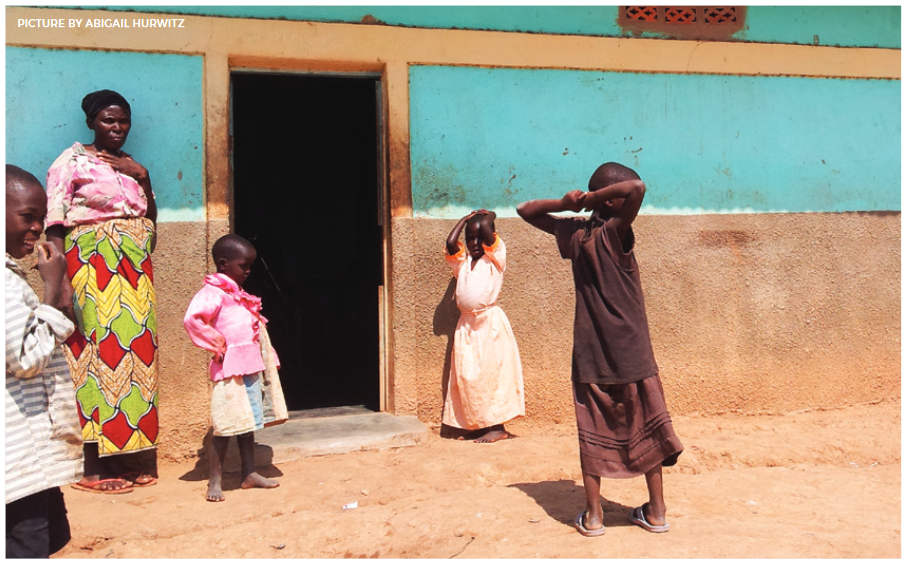
On July 28th, 2014, I arrived at Kakuma refugee camp to start my internship with IsraAID. I knew very little about the camp except that it housed 180,000 refugees, that it was located in the desert in North West Kenya, and that it had harsh weather conditions. I did not even truly know what my position would be, a natural state for an intern. After exploring a few options, I was assigned the position of the organization's Programs Coordinator, having different levels of involvement in all activities, as well as initiating an educational program that connects eligible refugees to online tertiary education.
IsraAID (The Israel Forum for International Humanitarian Aid) is an Israel-based humanitarian organization that responds to emergencies all over the world with targeted help. Kakuma camp was established in 1992, and IsraAID began their work there in 2012. IsraAID implemented four programs during my stay: a Psychosocial Training of Trainers (ToT) for teachers in the camp to identify and deal with psychosocial issues in their learners; a Water and Sanitation ToT which targets mainly youth from the host community; a Doctors Program, designed to connect volunteer doctors from Israel to the two hospitals in the area, and the Online Education Program.
During my time in Kakuma, I learned many things that I do not believe can be taught in a classroom. My internship was unique in the sense that it is not a place, population or work environment that one might come across by chance, without aiming specifically for it. In spite of reading about the subject during my coursework and in preparation for my internship, the reality was far more complicated than I anticipated, and in different ways than one might think.
In some areas, my expectations of the camp were correct, such as poor conditions and infrastructure. However, the level of commerce in the camp and the strong relationship the camp's residents had with the host community, for example, were new and surprising to me.
What struck me most when working in Kakuma, a camp twenty-three years old, was how many of the refugees know only this state of instability. Born after their family arrived in the camp or shortly before, some of the camp's residents have never lived anywhere else. They are considered citizens of their home countries and identify as such, whether because of their family ties, or because they hold no other citizenship. However, they have either never actually lived in their country of origin, or left when they were too young to remember, and many of them are now adults.
After working in the camp for some time, it is easier to spot those who have been born there, or came as infants. They seem to have a better ability to handle life in the camp and suffer less from the psychological issues that usually burden a refugee's mind. It is not to say that their lives are any easier, but having not experienced persecution first hand, they adapted to the life in the camp more easily.
As practitioners, we must ask ourselves, how does this permanence affect their identity, mental peace, and ability to plan their lives? When people grow up in a system where they are dependent on NGOs, what are their chances of leading an independent life? How does this affect their chances of being resettled? Even if they had a choice, would it be in their best interest to leave a place that, although difficult and holds many challenges, is familiar and has been their home their entire lives?
It is important to note that most of these refugees do not wish to stay in Kakuma. They have not built their lives and families there out of choice, but simply because they have nowhere else to go. They came from countries that suffer a continuing war and persecution, and were never presented with the option of being citizens of any other country.
This observation of how a long-term stay in refugee camps affects refugees' mentality is important now more than ever. We are currently dealing with the most extensive refugee crisis since World War II, with millions of Syrian refugees fleeing to neighboring countries in the Arab World, Europe, and any country that will not turn them away.
The UNHCR (United Nations High Commissioner for Refugees) is now working to resettle as many refugees as possible, but this is a solution for only a small percentage. Naturally, with refugees arriving in overwhelming numbers and dying on the shores before reaching their destinations, we cannot yet start to plan and implement long term solutions. However, it is imperative that governments learn from former and continuing crises in such as in Burma or the Democratic Republic of Congo, so that hundreds of thousands of people are not left in an eternal state of dependency on NGOs and foreign governments.
Inbal Nachum


